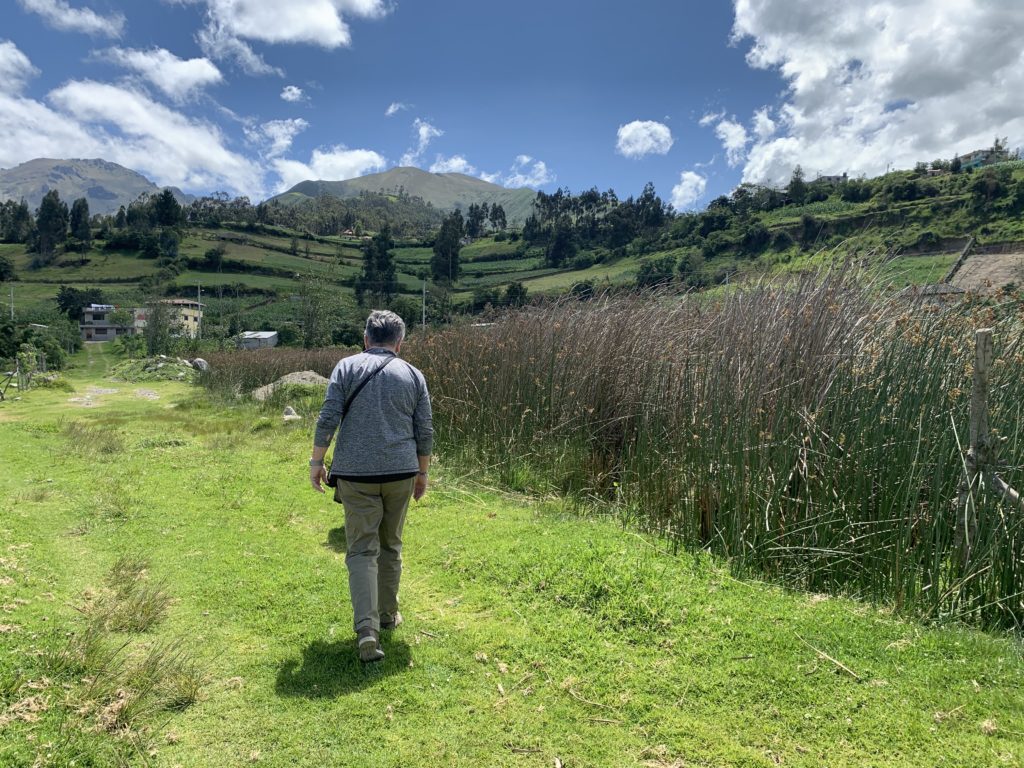Amor de Ecuador / Love for Ecuador
As I sit and watch the flower petals drop from tulip trees on Memorial Day I am reminded of Ecuador. While there I saw an array of beautiful flowers every single day walking along the streets of Quito. My wife and I went to Ecuador to serve with Fedice and Global Ministries. Fedice works with many different indigenous tribes to help create sustainable economic systems. Through agricultural, livestock, medical trainings, and volunteer work they facilitate growth and education all around Ecuador. They bring in people on mission trips and utilize whatever skills and knowledge they can offer. In turn the volunteers learn from the tribes as they work together in a Minga (a word in kichwa that means a combined effort for the benefit of the community.) Additionally, Fedice organizes workshops given by local experts to teach about livestock and how to improve their livelihood and the land utilizing them.
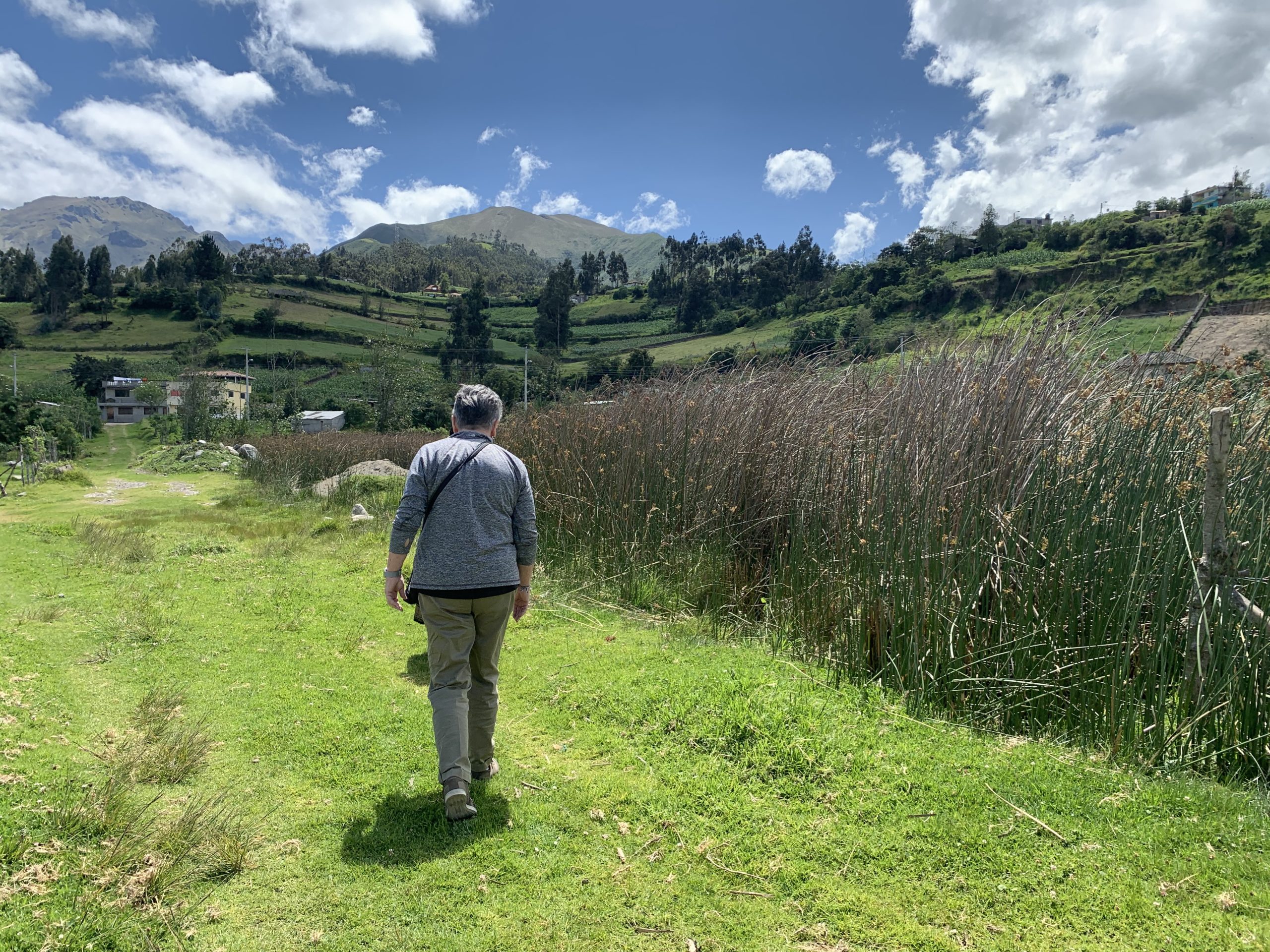 When we first arrived in Ecuador we were immediately taken to Otavalo to work with a group from Kansas City, Missouri. I was very excited to start working in such a small community outside of Quito because it reminded me of why I wanted to work abroad in the first place. In 2017 my wife and I went to Nicaragua and fell in love with working with the locals and children and now we were both able to see the connection to our previous experience working side by side with all the members of the community of Otavalo.
When we first arrived in Ecuador we were immediately taken to Otavalo to work with a group from Kansas City, Missouri. I was very excited to start working in such a small community outside of Quito because it reminded me of why I wanted to work abroad in the first place. In 2017 my wife and I went to Nicaragua and fell in love with working with the locals and children and now we were both able to see the connection to our previous experience working side by side with all the members of the community of Otavalo.
While we were in Otavalo we worked with the people of Tocagon. While there we helped with many different workshops. First we took height and weight measurements, and any symptoms they may have recently had. Next, we helped conduct trainings on hygiene and first aid. Last, we helped with improvement projects for the daycare center. This was a very rewarding experience and we loved every moment we were able to share with the locals and the awesome congregation of Country Club Christian Church.
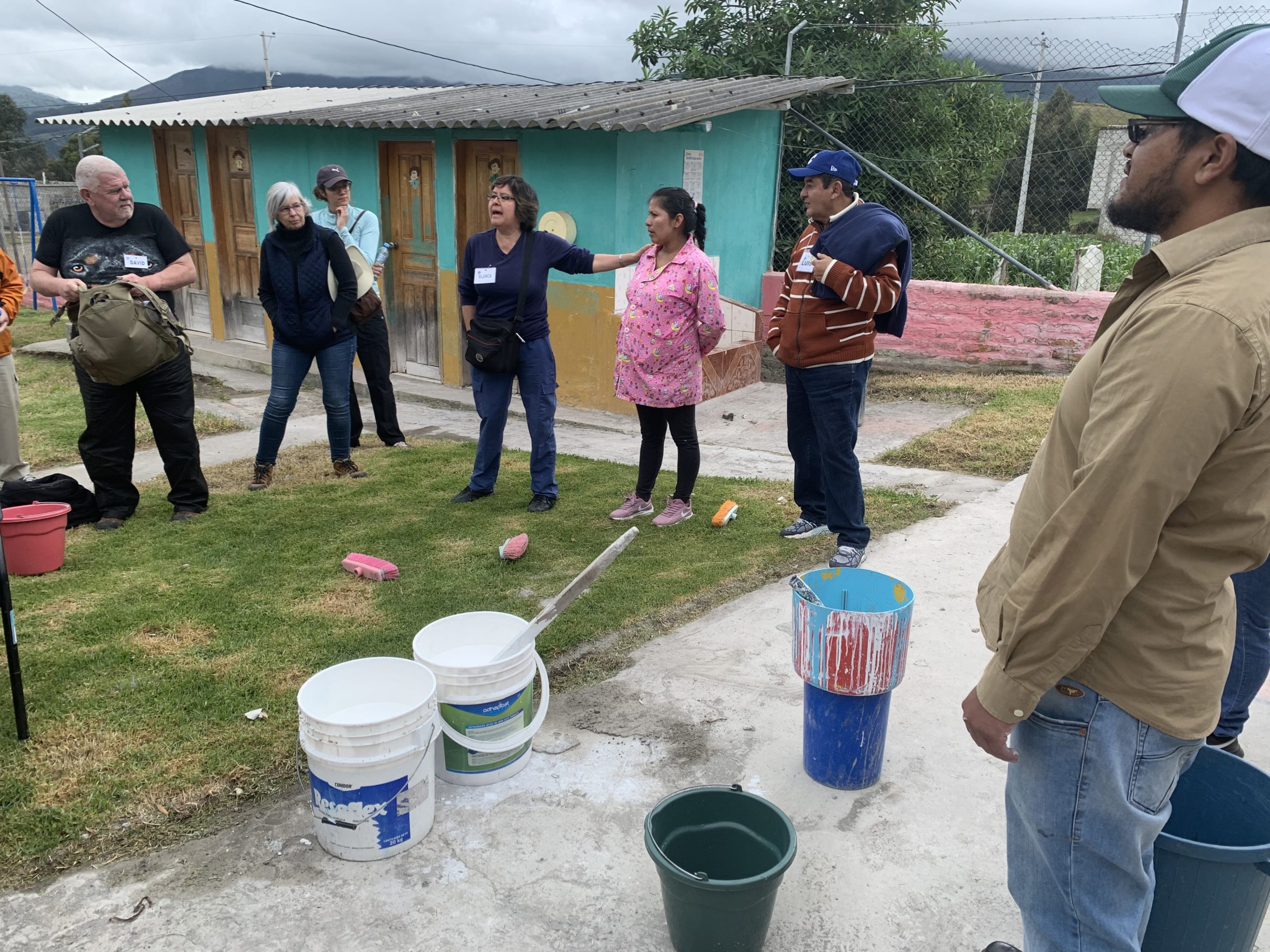 After we finished working with this group we moved back to Quito where we continued Spanish classes to better communicate during trainings and workshops. We also were finally able to meet our new Ecuadorian family. Rocio was our house mother who made us traditional Ecuadorian meals every day to help us experience as much of their culture as possible. She lived in an apartment above her daughter, Maita, son-in-law, Roberto, and granddaughter, Alejandra. Another part of our Ecuadorian family were our neighbors, Chio, William, Ariana, and Nicolas. All of these people along with Blanca Puma who is the director of Fedice, were very big parts of our lives in Ecuador. During our stay with the family we started to help organize new groups coming to volunteer with Fedice. We also helped translate documents and first aid booklets that we would later use for the workshops. It was a great experience because we were able to have an array of learning, teaching, and exploring during our time here.
After we finished working with this group we moved back to Quito where we continued Spanish classes to better communicate during trainings and workshops. We also were finally able to meet our new Ecuadorian family. Rocio was our house mother who made us traditional Ecuadorian meals every day to help us experience as much of their culture as possible. She lived in an apartment above her daughter, Maita, son-in-law, Roberto, and granddaughter, Alejandra. Another part of our Ecuadorian family were our neighbors, Chio, William, Ariana, and Nicolas. All of these people along with Blanca Puma who is the director of Fedice, were very big parts of our lives in Ecuador. During our stay with the family we started to help organize new groups coming to volunteer with Fedice. We also helped translate documents and first aid booklets that we would later use for the workshops. It was a great experience because we were able to have an array of learning, teaching, and exploring during our time here.
A few of the takeaways I received while working in Ecuador with the indigenous communities was gratitude, community, worship, and family.
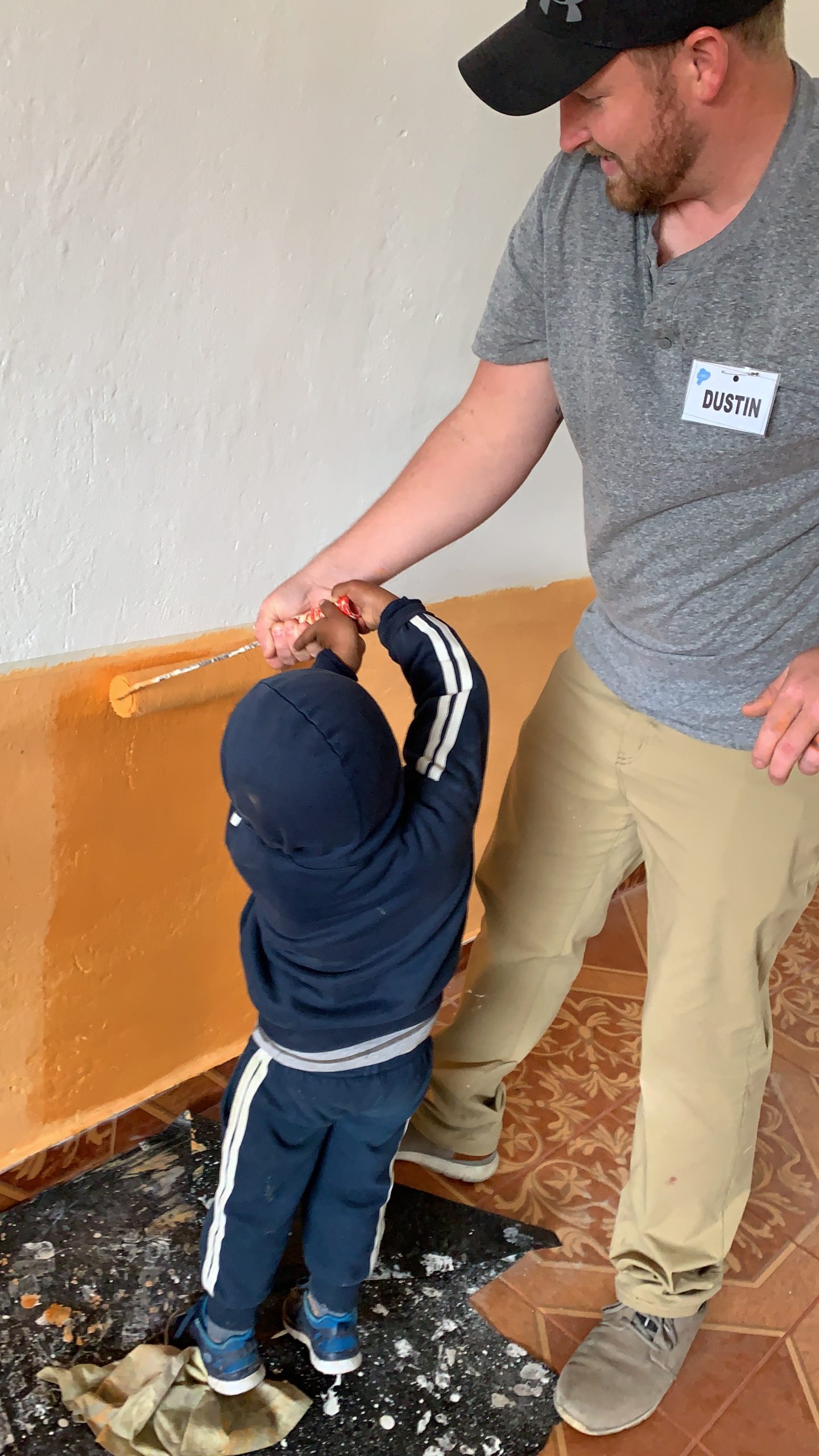 We have to have gratitude for the people and things in our lives and get out of the thought process that we always need more. I fall victim to this and it is sad to think about but really, to me, the people in Ecuador seemed happier and more content with what they do have than many people do in the United States. This was surprising at first, because to many people in the United States it would appear they have very little but what they cherish is family, friends, and community as a whole.
We have to have gratitude for the people and things in our lives and get out of the thought process that we always need more. I fall victim to this and it is sad to think about but really, to me, the people in Ecuador seemed happier and more content with what they do have than many people do in the United States. This was surprising at first, because to many people in the United States it would appear they have very little but what they cherish is family, friends, and community as a whole.
The sense of community is so awesome in Ecuador! In our hometown as you drive through the neighborhoods you will see maybe one person out jogging or working on their lawn. In Ecuador as you drive along the road you will see tons of people all outside and if they are not already conversing with someone they are sitting outside waiting to talk to whoever has time. They don’t sit inside with their garage doors closed at all times like we often see in the United States. Also, there is a rich community that I noticed when working with the daycare center staff in Otavalo. You could see the women of the community care for all of the children of their community with such love and compassion in a way that was really moving to see.
Worship. We were able to experience a few different styles of worship and I hated that at first I gave some side eye, thinking, “This is a weird way to worship. Why is everyone talking while the pastor was praying?” But I quickly came to love this part of worship every Sunday. As the preacher prayed so did the entire congregation not loudly but under their breath, as a whisper so that the entire church was buzzing with a background noise like little prayer missiles being fired in all directions as the pastor’s voice rang out with such passion that you could feel the boom in every syllable. This was an awesome experience and I will never forget those whispering sounds that made my soul move.
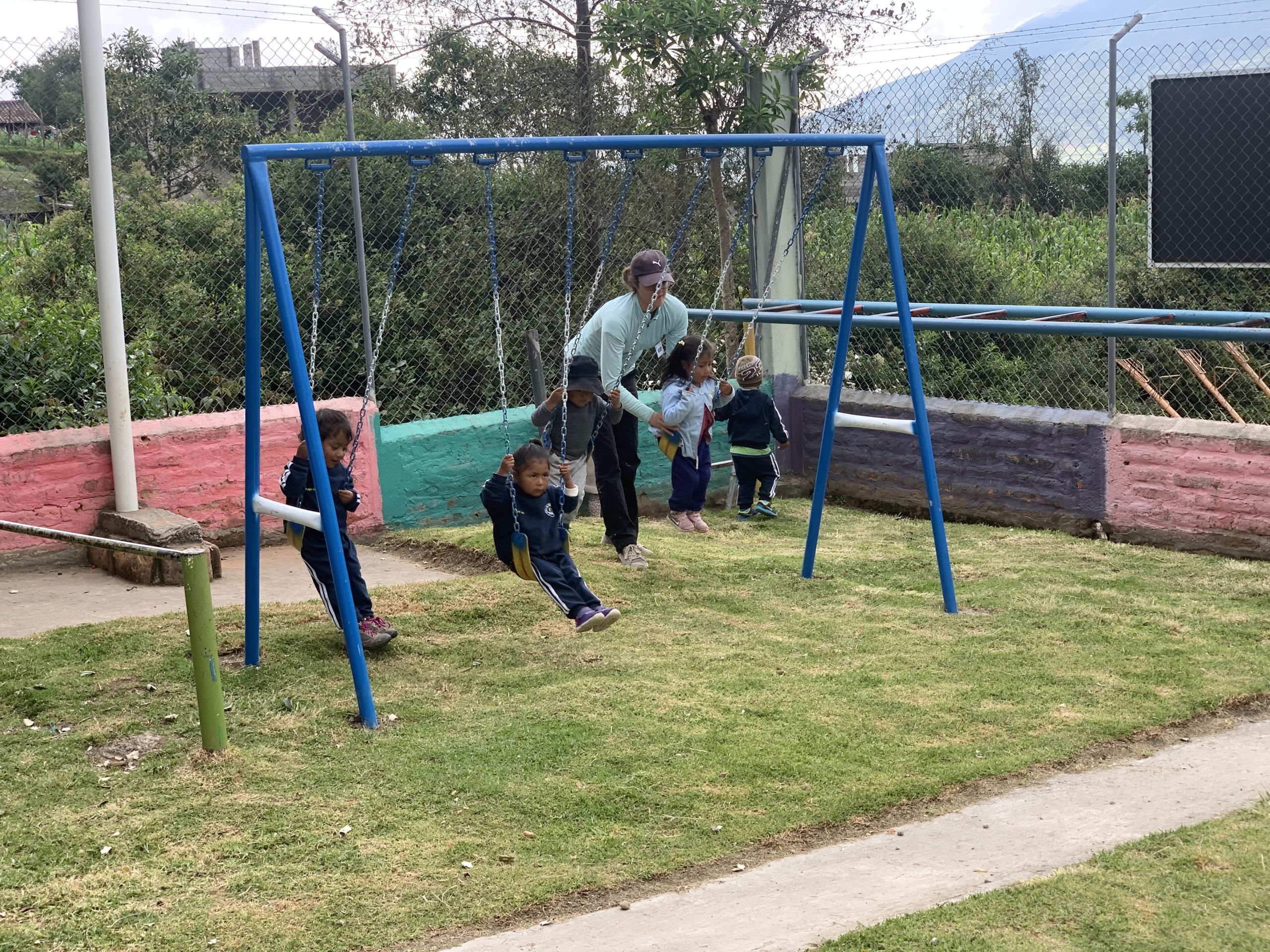 My last takeaway is family. Family in all of Central and South America is very rich and close. Many times people there will live with their families their entire lives and even share rooms with three or even four other people. The people of Ecuador were very protective of their families but were also very quick to adopt us as one of their own. We are so happy that our calling to serve abroad gave us another part of our family that we will have for the rest of our lives.
My last takeaway is family. Family in all of Central and South America is very rich and close. Many times people there will live with their families their entire lives and even share rooms with three or even four other people. The people of Ecuador were very protective of their families but were also very quick to adopt us as one of their own. We are so happy that our calling to serve abroad gave us another part of our family that we will have for the rest of our lives.
Thank you to Global Ministries and all who help to support them for this experience in my life that I will always hold close to my heart and soul. I have learned way more than I could have ever imagined. I hope I can continue to spread the good news of God and His work through Global Ministries and Fedice throughout my life.
Dustin Riebel serves with the Ecumenical Foundation for Integral Development Training and Education (FEDICE) in Ecuador. His appointment is made possible by your gifts to Disciples Mission Fund, Our Church’s Wider Mission, WOC, and your special gifts.

